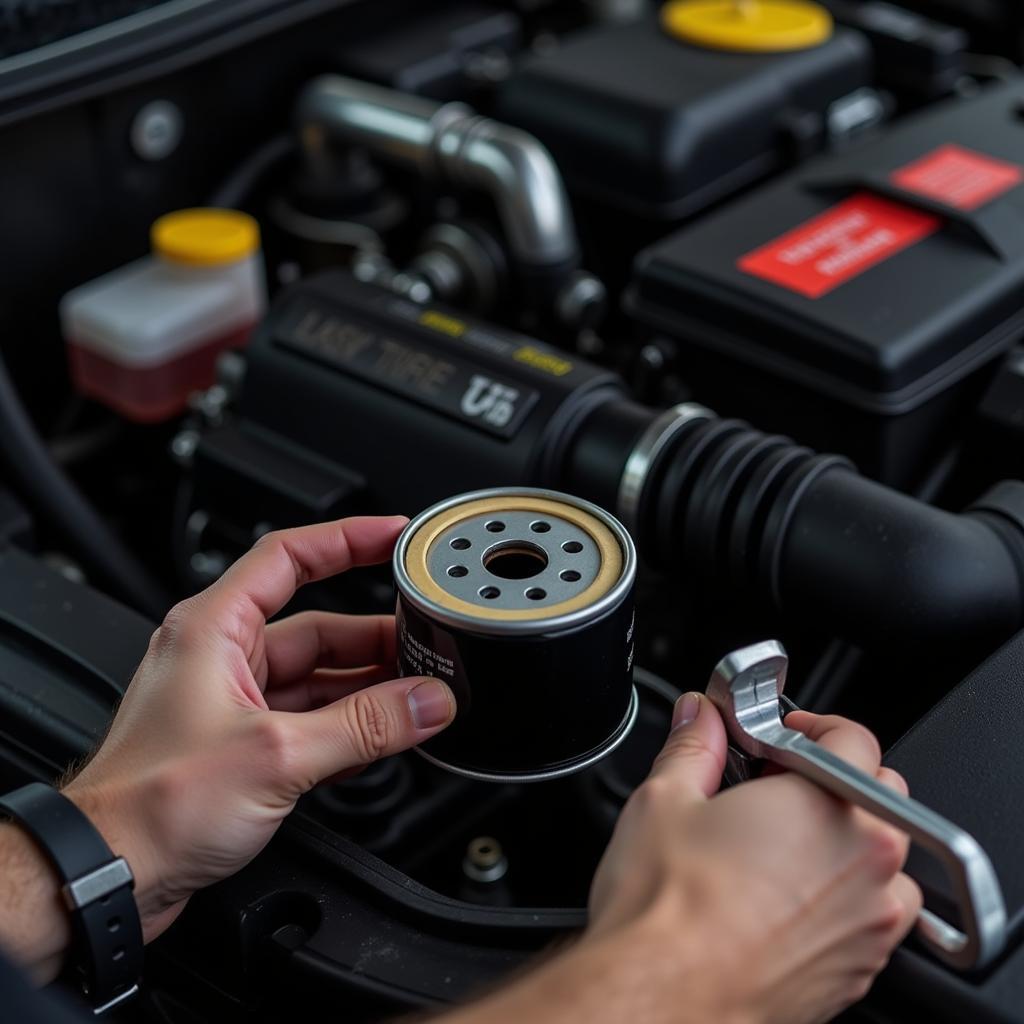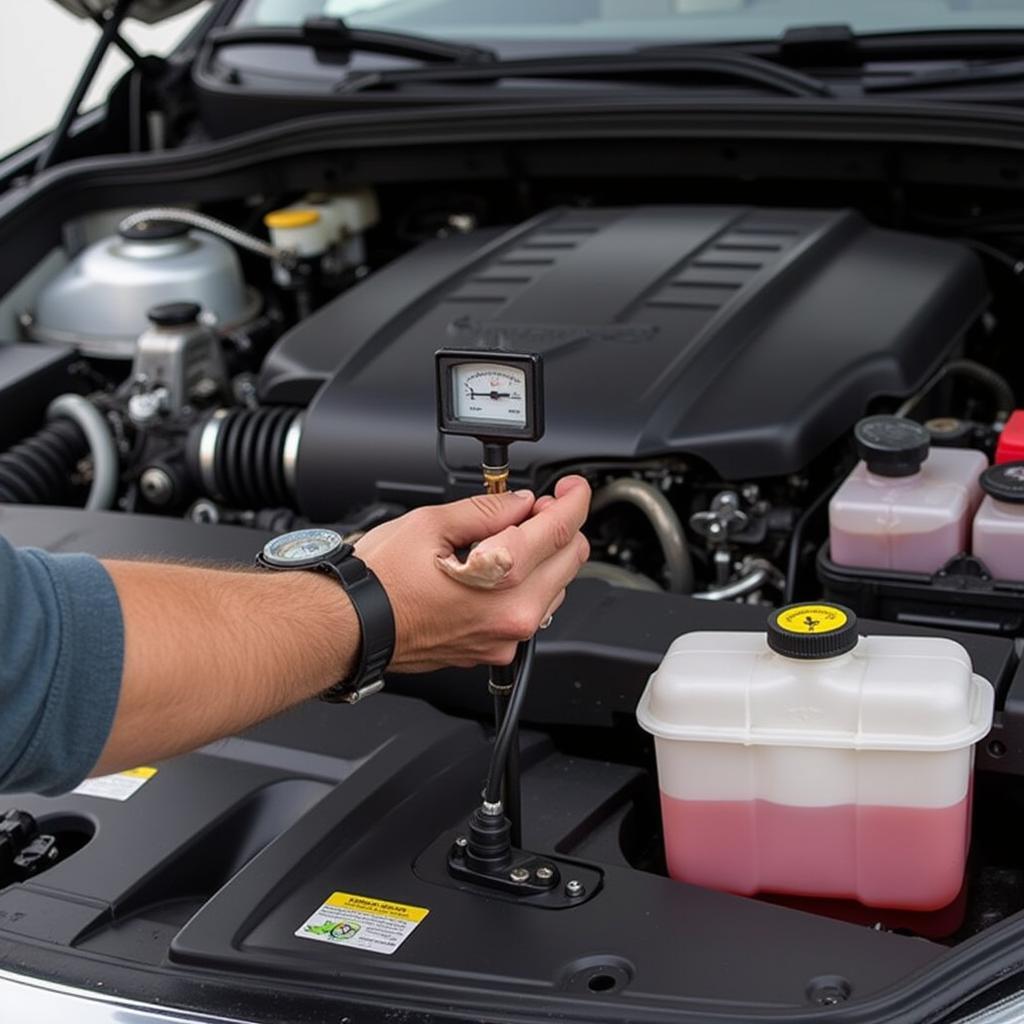Car maintenance can feel like a chore, but it’s essential for keeping your vehicle running smoothly and avoiding costly repairs down the road. Whether you’re a seasoned car enthusiast or a new driver, understanding the ins and outs of car maintenance can save you time, money, and stress. This comprehensive guide will delve into all aspects of car maintenance, providing you with the knowledge and resources to keep your car in tip-top shape.
Why is Car Maintenance Important?
Regular car maintenance is crucial for several reasons:
- Safety: A well-maintained car is a safer car. Regular maintenance ensures that all safety-critical components, such as brakes, tires, and lights, are in optimal condition, reducing the risk of accidents.
- Reliability: Consistent car maintenance helps prevent unexpected breakdowns and ensures that your vehicle is reliable for daily commutes, long road trips, and everything in between.
- Longevity: Proper car maintenance can significantly extend the lifespan of your vehicle. Regular oil changes, fluid checks, and inspections can prevent wear and tear, keeping your car running smoothly for years to come.
- Resale Value: A well-maintained car with a detailed service history will have a higher resale value when it’s time to upgrade.
Essential Car Maintenance Tasks
To keep your car in peak condition, it’s crucial to stay on top of essential maintenance tasks:
1. Regular Oil Changes
Oil is the lifeblood of your engine, lubricating moving parts and preventing friction. Over time, oil degrades and loses its effectiveness. Regular oil changes are essential for:
- Reducing engine wear: Fresh oil lubricates engine components, reducing friction and wear.
- Improving fuel efficiency: Clean oil reduces engine drag, improving fuel economy.
- Preventing engine overheating: Oil carries heat away from the engine.
How often should you change your oil? Consult your owner’s manual for specific recommendations, but a general rule of thumb is every 3,000 miles or 3 months, whichever comes first.
 Car maintenance oil change essentials
Car maintenance oil change essentials
2. Tire Maintenance
Your tires are your car’s only point of contact with the road, making tire maintenance paramount for safety and performance. Key aspects of tire maintenance include:
- Tire Pressure: Maintaining the correct tire pressure is crucial for safety, fuel efficiency, and tire longevity. Check your tire pressure monthly using a reliable tire pressure gauge.
- Tire Rotation: Regular tire rotations help ensure even wear on all four tires, extending their lifespan. Aim to rotate your tires every 5,000-8,000 miles.
- Tread Depth: Adequate tread depth is essential for maintaining traction, especially in wet or icy conditions. Use a tread depth gauge to check your tire tread.
- Wheel Alignment: Proper wheel alignment ensures that your tires wear evenly and your vehicle tracks straight.
3. Brake Inspections and Service
Your brakes are a critical safety system, and regular inspections and maintenance are non-negotiable.
- Brake Pads and Rotors: Brake pads and rotors wear down over time and need to be replaced periodically.
- Brake Fluid: Brake fluid is hygroscopic, meaning it absorbs moisture over time. This can lead to reduced braking performance and potential brake failure. Have your brake fluid flushed and replaced every 2 years or as recommended by your owner’s manual.
Warning Signs of Brake Problems:
- Squealing or grinding noises when braking.
- A vibrating brake pedal.
- The car pulling to one side when braking.
4. Fluid Checks and Replacements
Your vehicle relies on various fluids to function correctly. Regularly checking and topping off these fluids is essential for maintaining performance and preventing damage.
- Coolant: Coolant helps regulate engine temperature. Check the coolant level regularly and add more as needed.
- Transmission Fluid: Transmission fluid lubricates and cools the transmission.
- Power Steering Fluid: Power steering fluid helps make steering easier.
- Windshield Washer Fluid: Always maintain a sufficient level of windshield washer fluid, especially during inclement weather.
 Car maintenance checking fluids
Car maintenance checking fluids
5. Battery Maintenance
Your car battery provides the electrical current needed to start the engine and power electrical components.
- Battery Terminals: Keep the battery terminals clean and free of corrosion.
- Battery Test: Have your battery tested regularly to ensure it’s holding a charge.
Signs of a Failing Battery:
- Slow engine cranking.
- Dim headlights.
- A clicking sound when you turn the key.
Car Maintenance Schedule
To make car maintenance more manageable, establish a regular maintenance schedule.
- Daily: Check your tire pressure and make sure all lights are functioning.
- Monthly: Inspect your tire tread depth and check your engine oil level.
- Every 3,000 Miles or 3 Months: Change your engine oil and oil filter.
- Every 6,000 Miles: Rotate your tires.
- Every 12,000 Miles: Inspect and service your brakes.
- Every 30,000 Miles: Replace your air filter and cabin air filter.
This is a general guideline. Always refer to your owner’s manual for specific maintenance intervals.
DIY vs. Professional Car Maintenance
While some car maintenance tasks can be tackled by DIY enthusiasts, others are best left to the professionals.
DIY Car Maintenance:
- Checking Fluids: You can easily check and top off most fluids in your car.
- Changing Your Air Filter: Air filters are typically easy to access and replace.
- Replacing Windshield Wipers: Windshield wipers are a straightforward DIY replacement.
Professional Car Maintenance:
- Oil Changes: While oil changes are possible to do yourself, they can be messy, and proper disposal of used oil is crucial.
- Brake Service: Brake work requires specialized knowledge and tools.
- Transmission Fluid Changes: Transmission fluid changes are best left to professionals.
“Regular car maintenance is an investment, not an expense. It’s far less costly to address minor issues early on than to deal with major repairs later.” – John Smith, Automotive Engineer at Autotippro
Conclusion
Car maintenance is essential for the safety, reliability, and longevity of your vehicle. By following a regular maintenance schedule and addressing potential issues promptly, you can keep your car running smoothly for years to come. If you encounter any car maintenance issues or need expert advice, don’t hesitate to contact AutoTipPro at +1 (641) 206-8880 or visit our office located at 500 N St Mary’s St, San Antonio, TX 78205, United States. Our team of experienced technicians is here to assist you with all your car maintenance needs.





Leave a Reply